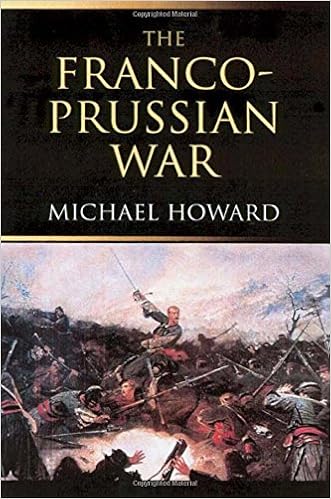
Otto von Bismarck saw Lincoln’s war as one of unification and centralization, as he had accomplished with the German states; Bismarck also promoted the purchase of US government bonds to support Lincoln’s war. In 1870, the Northern general who visited total war on the Shenandoah Valley and its people was an official observer of Bismarck’s war on France, and undoubtedly influenced the war against civilians. The “francs-tireurs” noted below were French partisans who were shot if caught.
Bernhard Thuersam, www.Circa1865.com The Great American Political Divide
Total War Comes to France
“Moreover as the war dragged on into the winter and fancs-tireur activity grew, the Germans learned an ever-deeper hatred of the nation which was in their eyes prolonging the struggle so uselessly, and by such underhand means. “The War,” wrote a German officer campaigning on the Loire in November, “is gradually acquiring a hideous character. Murder and burning is now the order of the day on both sides, and one cannot beg Almighty God finally to make an end to it.”
“We are learning to hate them more every day, wrote another, a sane and civilized man who watched with horror the deterioration which bitterness and brutality were working among his troops. “I can assure you that it is also in the interests of the civilization of our own people that such a racial struggle should be brought to an end. Atrocious attacks are avenged by atrocities which remind one of the Thirty Years’ War.”
The discipline which during the summer had forced the German troops to respect civilian property was gradually relaxed.
“At first we were forbidden with the severest penalties, to burn vine-posts in bivouacs, and woe to him who used unthreshed corn for his palliasse. Child-like innocence! Now no one asks whether you are using garden fences . . . no Frenchman can any longer lay claim to property or means of livelihood.”
Thus throughout the autumn and winter of 1870 the terrorism of the francs-tireurs and the reprisals of the Germans spiraled down to new depths of savagery. If the French refused to admit military defeat, then other means must be found to break their will.
The same problem had confronted the United States in dealing with the Confederacy six years earlier, and Sherman had solved it by his relentless march through the South. [General Helmuth von] Moltke had believed war to consist in the movement of armies; but General Sheridan, who was observing the war from German headquarters, pointed out that this was only the first requirement of victory. [He stated:]
“The proper strategy [he declared after Sedan] consists in inflicting as telling blows as possible on the enemy’s army, then in causing the inhabitants so much suffering that they must long for peace, and force the government to demand it. The people must be left nothing but their eyes to weep with over the war.”
Bismarck took this advice more seriously than did Moltke. The more Frenchmen who suffered from the war, he pointed out, the greater would be the number who would long for peace at any price. “It will come to this, that we will have shoot down every male inhabitant.” Every village, he demanded, in which an act of treachery had been committed, should be burned to the ground and all male inhabitants hanged. To show mercy was “culpable laziness in killing.”
(The Franco-Prussian War: The German Invasion of France, 1870-71; Michael Howard, Routledge, 1989 (original 1961), excerpts, pp. 379-380)

No comments:
Post a Comment